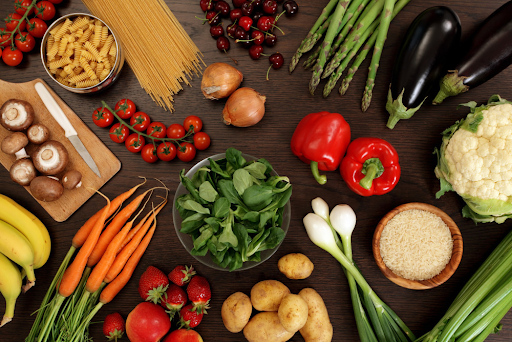The Humane League Has A Helpful Plant-Based Diet Starter Guide for People Resolving to Eat Fewer Animals
New York, N.Y. – The Humane League has released a plant-based diet starter guide for people whose New Year resolution is to eat fewer animals.
According to Vicky Bond, president of The Humane League, each American on average eats about 174 animals annually. Those animals are mostly shellfish, particularly shrimp, but also 23 chickens, 12 fish, a tenth of a cow and a third of pig, three-quarters of a turkey and the occasional bite of duck.
“Those who care about farm animal welfare but aren’t ready for a big change can still make a positive impact by adding meatless Mondays to their diet,” she said in a statement that announced release of Plant-Based Diet for Beginners: How to Start in 2022 in late 2022.
The guide counsels simply eating more plant foods, such as eating a salad daily, reliably reduces the total amount of animal foods a person eats. “As you increase your consumption of plants—building meals around plant sources—you’ll find that you naturally reduce your consumption of meat, dairy, and eggs,” the guide says.
A plant-based diet can contain ample plant-based junk food, warns Plant-Based Diet for Beginners. It recommends building meals around what it terms the five essential food groups:
- Fruits and vegetables: The guide offers recipes that make it easy to add at least one fruit or vegetable to every meal.
- Whole grains: Oatmeal for breakfast or whole grain rice at dinner are much more filling than people transitioning from an animal-based diet often realize.
- Nuts and seeds: Nutritional powerhouses that can be eaten at most meals, in addition to as snack. Examples include adding walnuts to a salad, sprinkling pumpkin seeds on avocado toast, or mixing pistachios into a stir-fry.
- Legumes: Beans, lentils, and chickpeas are packed with protein and essential nutrients. Legumes in particularly are filling as well as nutritious.
- Healthy fats: Omega-3 fats, such as from avocados and olive oil, are delicious, nutritious, and essential for healthy brain function.
The many benefits of a plant-based diet
A plant-based diet has profound individual health benefits, and the potential of globally significant environmental benefits if there is ever a widespread shift away from diets centered on eating animals.
Many studies on large populations have indicated that vegans have lower risks of cancer, cardiovascular disease, and other chronic degenerative diseases than do meat eaters. The perception than plant-based diets are inherently healthier it underscored by the increasing number of world-class athletes fueled by plant-based diets. These include tennis champion Serena Williams, heavyweight boxing champion Mike Tyson, New England Patriots quarterback Cam Newton, and ultra-marathoner Scott Jurek.
Animal agriculture is a driver of forest clearing, with the resulting loss of biodiversity through habitat destruction.
Animal agriculture is a leading cause of deforestation as forests are burned and cleared for livestock. In 2018, 30 million acres of tropical rainforest were lost.
A study published by the National Academy of Sciences in 2019 found that a global shift to plant-based diets could prevent 8.1 million premature human deaths by 2050, cut food-related greenhouse gas emissions by 70%, and save as much as one trillion U.S. dollars per year on healthcare and lost work due to sick days.
According to the Environmental Protection Agency, animal farming is a top source of methane, carbon dioxide, and nitrous oxide which are driving climate change. Livestock and their waste are the largest source of methane in the US. A single dairy cow produces between 250-500 liters of methane per day and has a similar climate impact to driving from Los Angeles to New York three times. There are nine million dairy cows in the U.S.
Plant-based diets cost less
Pleasantly, a plant-based diet saves money at the grocery store. A study published in The Lancet Planetary Health analyzed the relative costs of different diets. It found that vegan diets were the most affordable way to eat in high-income countries, reducing food costs by 21-34%. While meat and eggs account for most of the rising costs at the supermarket, veggies, bread, and legumes have actually risen slower than the overall rate of inflation for groceries.
The Plant-Based Starter Guide is available for free as a download from the The Humane League.
Peter Page is the Contributions Editor at Grit Daily. Formerly at Entrepreneur.com, he began his journalism career as a newspaper reporter long before print journalism had even heard of the internet, much less realized it would demolish the industry. The years he worked a police reporter are a big influence on his world view to this day. Page has some degree of expertise in environmental policy, the energy economy, ecosystem dynamics, the anthropology of urban gangs, the workings of civil and criminal courts, politics, the machinations of government, and the art of crystallizing thought in writing.
Credit: Source link


Comments are closed.